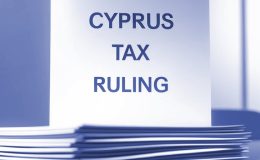Closing a Cyprus Company
Closing a Cyprus company involves a number of legal procedures that must be followed to ensure compliance with the regulations of the jurisdiction. There are several methods of dissolving a Cyprus company, each with its own requirements and procedures.
Voluntary Liquidation
Voluntary liquidation is the most common method of closing a Cyprus company. This process involves the appointment of a liquidator who will be responsible for winding up the affairs of the company, distributing its assets, and paying off its debts. The liquidator is typically appointed by the shareholders and must be a licensed insolvency practitioner.
The process of voluntary liquidation starts with the passing of a resolution by the shareholders of the company. The resolution must be passed in accordance with the provisions of the company’s Articles of Association and must be approved by at least 75% of the shareholders. The resolution must also specify the date on which the liquidation process will commence, and the appointment of the liquidator.
Once the resolution has been passed, the liquidator must prepare a report on the company’s affairs, which must be submitted to the Registrar of Companies. The report must include a statement of the company’s assets and liabilities, a list of its creditors, and details of any outstanding debts or liabilities. The liquidator must also notify the company’s creditors of the liquidation and invite them to submit their claims against the company.
The liquidator is responsible for winding up the affairs of the company, including the sale of its assets and the payment of its debts. The liquidator must also distribute any surplus assets to the shareholders in accordance with the company’s Articles of Association. If there are not enough assets to pay off all the company’s debts, the liquidator must distribute the available assets to the creditors in accordance with the law.
The voluntary liquidation process is governed by the Companies Law, Cap. 113, which sets out the procedures for voluntary liquidation and provides for the appointment of a liquidator, the preparation of a report on the company’s affairs, and the distribution of the company’s assets to its creditors and shareholders.
Sections 268 – 274 of the Companies Law provide for the rights and duties of the liquidator, including the power to sell the company’s assets, the duty to investigate the company’s affairs, and the duty to make distributions to creditors and shareholders. The liquidator must act in the best interests of the company’s creditors and shareholders and must ensure that the liquidation process is carried out in a transparent and fair manner.
The process of voluntary liquidation typically takes around 6-12 months to complete, during which time the liquidator will prepare a report on the company’s affairs and submit it to the Registrar of Companies in Cyprus. Once the report has been approved, the company will be struck off the register and will cease to exist as a legal entity.
Involuntary Liquidation
Involuntary liquidation is a court-ordered process that may be initiated by creditors, shareholders, or the Registrar of Companies in Cyprus. This process is typically used when a company is unable to pay its debts or is found to be trading illegally. The court will appoint a liquidator, who will be responsible for winding up the affairs of the company and paying off its debts.
The process of involuntary liquidation starts with the filing of a petition with the court. The petition must be accompanied by evidence that the company is insolvent or that it is just and equitable to wind up the company. The petition can be filed by a creditor who is owed at least €5000, a shareholder, or the Registrar of Companies.
If the court is satisfied that the petition is valid, it will make an order for the compulsory liquidation of the company. The court will also appoint a liquidator to wind up the affairs of the company, sell its assets, and distribute the proceeds to its creditors.
Once the liquidator has been appointed, they will take over the management of the company and will be responsible for collecting its assets, paying off its debts, and distributing any surplus to the shareholders. The liquidator must also prepare a report on the company’s affairs, which must be submitted to the court and the Registrar of Companies.
The liquidator has wide-ranging powers to manage the affairs of the company, including the power to sell its assets, investigate its affairs, and recover any assets that have been improperly disposed of. The liquidator must also act in the best interests of the company’s creditors and must ensure that the liquidation process is carried out in a transparent and fair manner.
The process of involuntary liquidation is governed by the Companies Law, Cap. 113, which provides for the procedures for involuntary liquidation, including the appointment of a liquidator, the powers and duties of the liquidator, and the distribution of the company’s assets to its creditors.
Involuntary liquidation can have serious consequences for the company’s directors and shareholders, as they may be held personally liable for any debts that are not paid off during the liquidation process.
The process of compulsory liquidation can take several months to complete and may involve legal disputes and investigations. Creditors will be given the opportunity to make claims against the company’s assets, and the liquidator will distribute the assets to the creditors in accordance with the law.
Striking Off
Another method of closing a Cyprus company is through striking off. This process is typically used when a company has ceased to trade or has never traded, and there are no outstanding debts or liabilities.
Striking off is a process by which a company is removed from the register of companies, without going through a formal liquidation process. The process of striking off involves submitting an application to the Registrar of Companies in Cyprus, along with a declaration of solvency and a statement of accounts.
The Companies Law, Cap. 113, provides for the procedures for striking off a company from the register and sets out the requirements for striking off a company, which include:
- The company must have ceased to carry on business or has never carried on business;
- The company must not have any outstanding liabilities, such as unpaid taxes, penalties or debts to creditors;
- The company must not have any assets or property; and
- The company must have obtained a resolution from its members to wind up and dissolve the company.
Once the application for striking off is filed with the Registrar of Companies and the application fee is paid, the Registrar will publish a notice in the Official Gazette of the Republic of Cyprus, giving notice of the company’s intention to strike off. This notice will also be posted on the website of the Department of Registrar of Companies and Official Receiver.
If no objections are received within three months from the date of publication of the notice, the Registrar will strike off the company from the register of companies. The company will then cease to exist as a legal entity.
It is important to note that if the company has any outstanding liabilities or assets, it will not be eligible for striking off and must instead go through a formal liquidation process.
If the Registrar of Companies is satisfied that the company has no outstanding debts or liabilities and that the application is in order, the company will be struck off the register and will cease to exist as a legal entity. This process typically takes around 6-12 months to complete.







